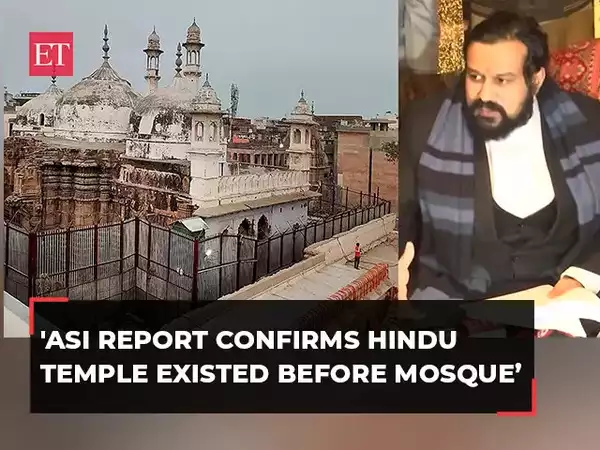The submission of the Archaeological Survey of India (ASI) survey report on the Gyanvapi mosque in Varanasi has stirred significant interest and debate regarding the historical and archaeological significance of the site. The exhaustive 839-page report presents compelling findings suggesting the presence of a pre-existing Hindu temple at the site before the construction of the current mosque structure.
According to the report, a plethora of terracotta, stone, and glass objects related to Hindu deities were unearthed during the survey. These findings include figurines of deities, male and female figures, bricks, tiles, sling balls, and fragmentary figures of Hanuman and Ganesha. Additionally, various stone objects, including sculptures of deities like Shiva linga, Vishnu, Krishna, Hanuman, and Ganesha, were discovered.
The discovery of coins from different periods further adds to the historical narrative of the site. Coins bearing Persian legends issued by Shah Alam, as well as British-India coins from the East India Company era to the reigns of Queen Victoria, Edward VII, and George V, were among the findings. Notably, the report mentions a hoard of 64 coins, including those difficult to identify due to corrosion, along with a copper coin of Madhav Rao Scindia.
Moreover, the report suggests that a pre-existing structure, possibly a Hindu temple, was destroyed during the 17th century, with parts of it repurposed in the construction of the existing mosque. Scientific studies referenced in the report provide evidence supporting the existence of a significant Hindu temple complex preceding the mosque.
The ASI report has been disseminated to concerned stakeholders, including the Islamic Centre of India, whose chairperson, Maulana Khalid Rasheed Firangi Mahali, emphasized the need for thorough examination before forming any conclusions. He stressed the importance of evaluating the report comprehensively and expressed hope that decisions regarding the site would be grounded in reality.
The revelations made in the ASI report have reignited discussions surrounding the historical narratives and cultural heritage associated with the Gyanvapi mosque. The findings underscore the complex layers of history embedded within the site and the imperative of nuanced examination to navigate its significance in contemporary contexts. As stakeholders engage with the report’s findings, the discourse surrounding the Gyanvapi mosque is likely to evolve, prompting deeper reflections on India’s rich historical tapestry.
